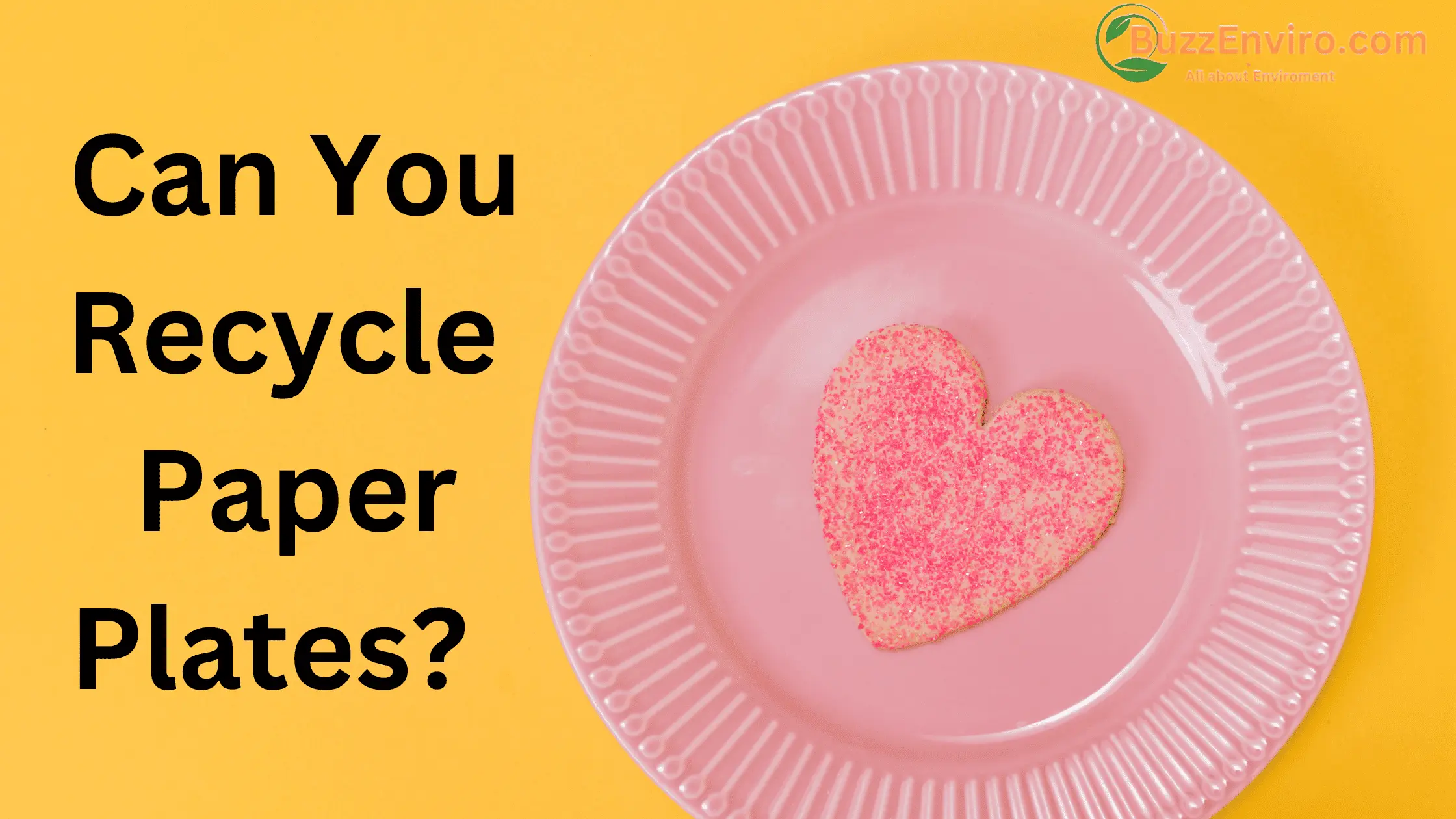The quick response is both no and yes. Paper plates can generally not be recycled, though some can. Think about more environmentally friendly options rather than discarding them after just one use.
Plates and cups that are made by paper are used by around 220 million Americans, and this number is projected to rise. The paper plate and cup market in the United States was valued at $20.7 billion in 2018, placing the nation among the top users of these goods globally.
Why Most of the Paper Plates Can’t Be Recycled?
Paper plates are typically made from a combination of paper pulp, water, and sometimes other materials like wax or plastic to improve durability and water resistance. The composition can vary depending on the brand and type of plate. The bulk of paper plates cannot be recycled for two main reasons:
1. They’re Coated in Wax, Plastic, or Clay
This coating gives the plate a smooth surface and keeps liquids and grease from soaking into it. Paper plates can’t usually be recycled like regular paper since the coating can’t be separated from the paper at a recycling centre.
Certain towns may accept to-go food containers and clean-coated paper plates, so it’s always a good idea to verify the specific guidelines in your area.
2. They’re Contaminated With Food Waste
Plates get covered with food waste after usage, some of which can be greasy. The majority of towns won’t accept old paper plates for recycling because doing so contaminates the recycling process.
How to Recycle it?
As long as the they are free of grease, oil, or food waste, most communities will accept them if you’re seeking to dispose of them without any form of plastic covering.
Find out if the recycling company in your area will take these kinds of paper plates for your normal curbside collection.
Environmental Impact of Paper plates
Choosing to use paper plates can have both positive and negative environmental impacts:
1. Resource Consumption
Paper plates are typically made from renewable resources (wood pulp), which makes them biodegradable and compostable under the right conditions.
2. Waste Generation

Disposable items like paper plates contribute to waste accumulation, especially if not disposed of properly.
3. Chemical Use
Bleaching agents and other chemicals are often used in the production process to achieve the desired color and properties of the plates. These chemicals can pollute waterways and harm aquatic ecosystems if not properly managed.
How to Reuse Paper Plates?
Looking out methods to repurpose the paper plates you do have is an excellent idea if you’re seeking to lessen your environmental effect. You may find other uses for them even though they cannot be recycled.
1. You can clean and reuse heavy-duty paper plates that you purchased if, after usage, they are just slightly soiled (perhaps because you served dry food on them).
2. They may be used for many different craft projects if they are clean.
3. A simple tiny basket for cookies, muffins, or other baked goods can be made from a folded paper plate.
Alternatives of Paper Plates
Using reusable plates is the most apparent substitute. A reusable plate will still have a smaller environmental impact even if you have to wash it with water.
There are semi-disposable options available if you’re seeking for natural materials, like bamboo or palm leaves. These plates are reusable after a few cycles of washing and cleaning. You may add them to your compost pile when their useful life is coming to an end, and they will decompose organically.
Can You Compost Paper Plates?
You might be allowed to use specific kinds of paper plates in your home’s compost pile. You can add any plates with the labels “PLA” or “compostable” to your compost pile. Some paper plates are coated with PLA (polylactic acid), a bioplastic that decomposes during composting.
You may also contribute plates made without plastic to your compost pile. Maybe shred them first and throw them to your compost pile along with leftover food scraps or garden trash.
